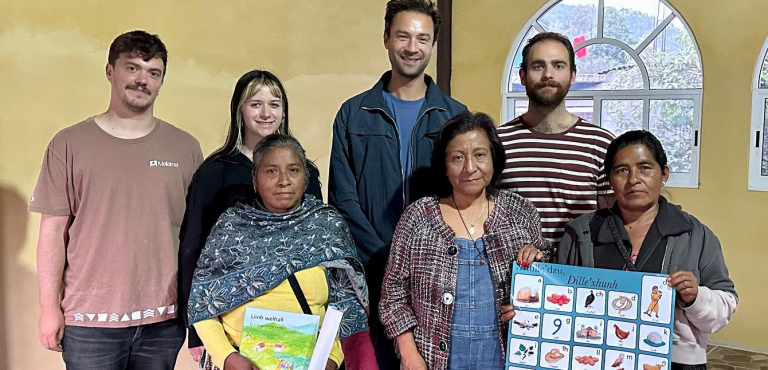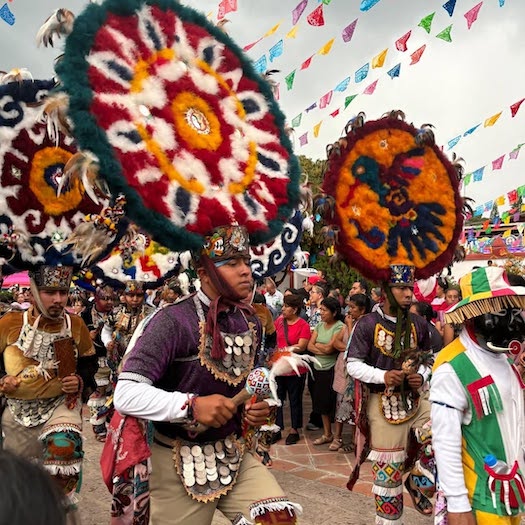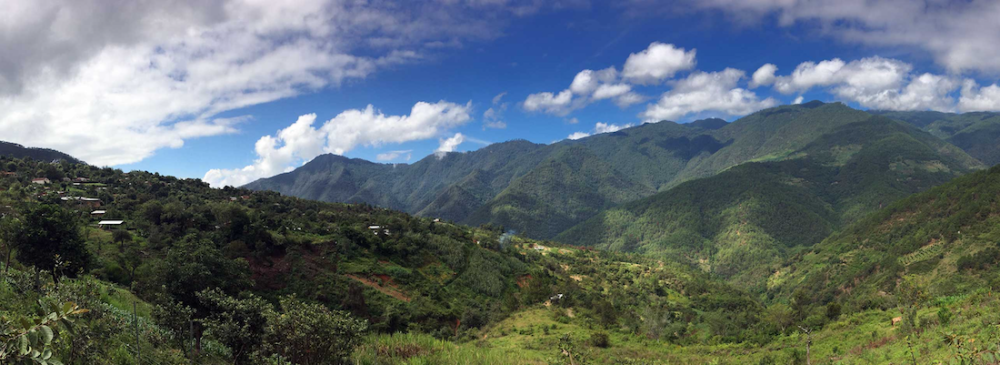
In California and Oaxaca, a collaborative project bridges continents and generations to revitalize Zapotec for the future
New York, N.Y. — On a crisp Saturday morning in Santa Cruz, California, a small classroom buzzes with the sound of a language few outside southern Mexico have ever heard. Elders from Santiago Laxopa, young children born in the U.S., and linguists from the University of California, Santa Cruz, gather in a circle.
They repeat words, share stories, and laugh—each syllable a thread in the tapestry of a language at risk of fading away. This is the heart of the Zapotec Language Project, a unique collaboration determined to ensure that the voices of Oaxaca’s Sierra Norte continue to echo across generations and continents.
A Language at the Brink, an Urgent Response

The Zapotec language, with its intricate grammar and vibrant oral traditions, has endured centuries of cultural and political upheaval.
Yet today, it confronts a formidable challenge: the relentless pressures of globalization and widespread migration.
Many Zapotec speakers have resettled in California, pursuing economic opportunities but often leaving their native language behind.
As elders pass away, irreplaceable stories, songs, and unique perspectives on the world risk fading into silence.
Recognizing this urgent crisis, linguists at U.C. Santa Cruz partnered with Zapotec community members to launch the Zapotec Language Project.
Their mission is unwavering: to document, preserve, and revitalize the Zapotec variants spoken in Santiago Laxopa and surrounding villages, both in Mexico and within the growing diaspora in California.

Bridging Continents:
Collaboration Across Borders
The project is more than an academic exercise. It is a living partnership, rooted in mutual respect and shared purpose.
Native speakers from Santiago Laxopa, San Sebastián Guiloxi, and Santa María Yalina work side by side with researchers, contributing their voices, memories, and expertise.
Monthly language classes in Santa Cruz—part of the university’s Nido de Lenguas initiative—offer a space for learning and connection.
Here, children of immigrants reclaim their heritage, while elders find recognition for their knowledge.
The project also maintains an online dictionary and a growing archive of oral narratives, freely available to all.

Unlocking the Secrets of Human Language
Beyond preservation, the Zapotec Language Project is a window into the mysteries of human cognition. Researchers delve into the language’s phonology, morphology, syntax, and semantics, exploring what Zapotec can reveal about the human mind’s capacity for language.
A groundbreaking psycholinguistic study investigates how Zapotec speakers process sentences as they listen—shedding light on how meaning is built in real time. These insights enrich not only the field of linguistics but also the community’s understanding of its own language, fostering pride and curiosity among younger generations.
Resources, Recognition, and the Power of Story

Generous funding from the U.C. Santa Cruz Humanities Institute, California Humanities, and the National Science Foundation has significantly propelled the project forward, enabling a wide range of impactful initiatives.
These resources have supported in-depth research, vibrant community engagement events, and the development of innovative educational materials designed to foster learning and cultural preservation.
The online dictionary and story collection serve as vital scholarly resources and cultural lifelines, bridging generations and communities.
These tools empower teachers, parents, and language enthusiasts to actively engage with and sustain the Zapotec language, ensuring its vitality for future generations.
The project’s impact reaches far beyond the classroom, fostering connections and cultural pride across diverse audiences.
By meticulously documenting oral histories, traditional knowledge, and unique cultural practices, the project preserves not just words but entire worldviews. It captures a profound legacy of resilience, adaptation, and creativity, safeguarding the rich heritage of the Zapotec people for years to come.
Challenges and Hopes for the Future
Despite these efforts, the path ahead is steep. Many young Zapotecs in California and Mexico face pressure to assimilate, speaking only Spanish or English. Economic hardship and social stigma often silence indigenous voices.
Yet hope endures. Each new learner, each recorded story, is a victory. The Zapotec Language Project stands as a testament to what is possible when academia and community unite, when heritage is honored not as a relic but as a living force.
“We are not just saving a language,” says one project
participant. “We are saving a way of being in the world.”
A Model for Language Revitalization
The Zapotec Language Project offers a blueprint for endangered language preservation everywhere. Its blend of rigorous research, community leadership, and open-access resources demonstrates that revitalization is not only possible but transformative—for individuals, families, and entire cultures.
Preserving Zapotec: Community Fights to Save Its Ancient Language (June 21, 2025)
This feature story highlights the urgent, inspiring work of the Zapotec Language Project, offering hope and a
practical model for communities everywhere fighting to keep their languages—and their identities—alive.
Summary for Audio File
The Zapotec Language Project, a partnership between U.C. Santa Cruz linguists and Zapotec communities from Oaxaca and California, is working to preserve and revitalize the endangered Zapotec language. Through collaborative research, monthly classes, and online resources, the project empowers new generations to reclaim their linguistic heritage and explores what Zapotec reveals about human language and cognition. Their efforts offer hope and a model for endangered language preservation worldwide.
#ZapotecLanguage #LanguagePreservation #IndigenousVoices #OaxacaDiaspora
#UC SantaCruz #EndangeredLanguages #CulturalHeritage #CommunityCollaboration
TAGS: Zapotec language, language revitalization, U.C. Santa Cruz, Oaxaca, indigenous communities,
endangered languages, linguistics, cultural heritage, community collaboration, oral traditions, diaspora